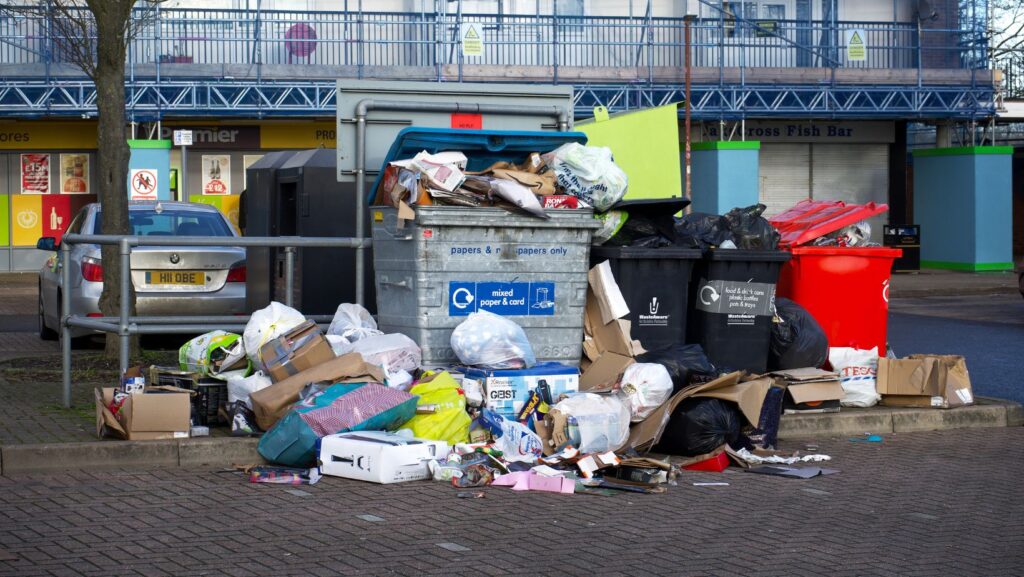Living in a city often means making the most out of limited space. We will explore how consistent junk disposal can transform the physical layout of your home or apartment and how you interact with your environment. Urban households accumulate clutter faster due to smaller living quarters, busy lifestyles, and limited storage. Old furniture, broken appliances, unused electronics, and outdated decor slowly crowd spaces that could otherwise be functional and inviting. When junk piles up, it affects more than just the look of a room—it begins to weigh on productivity, mental clarity, and even safety. It becomes harder to find things, easier to trip over items, and more frustrating to maintain a clean atmosphere. By scheduling regular cleanouts and committing to letting go of what no longer serves a purpose, residents can reclaim valuable rooms and feel more in control of their surroundings. This improved space often supports better habits and clearer thinking.
Creating Clarity Through Decluttering
The Impact of Neglected Items on Health and Safety
Beyond aesthetics, junk buildup can create significant health and safety concerns that are often overlooked. Items like old mattresses, carpets, and broken electronics can collect dust, mold, and allergens that affect indoor air quality, particularly in homes with children or individuals with respiratory issues. Boxes stacked too high or furniture no longer structurally sound can become hazards in small spaces where mobility is limited. In some cases, hoarded junk can block ventilation systems or exits, presenting fire risks. Pest infestations are another problem associated with neglected clutter, as piles of unused items become nesting grounds for rodents or insects. These health-related impacts make regular disposal more than just a cosmetic improvement—it is necessary to maintain a safe living environment.

Urban dwellers benefit from scheduling seasonal clear-outs or partnering with services that can assist with lifting and hauling bulky or deteriorated items, helping to prevent these risks from taking root inside the home.
Environmental Responsibility Starts at the Curb
In addition to improving living conditions, junk disposal plays a role in environmental stewardship. Urban environments generate a large volume of waste; without careful sorting, much of it ends up unnecessarily in landfills. Electronics, appliances, and furniture often contain recyclable materials that can be reused if properly processed. Residents who take the time to separate reusable or recyclable items help reduce the burden on city waste systems and contribute to more sustainable urban living. This is where having access to organized disposal resources becomes essential. When people have convenient options, they’re more likely to use them. That’s one reason services offering professional junk disposal in Boston are in such demand—they handle not only the physical labor but also the logistics of environmentally responsible disposal. These services often collaborate with recycling centers and donation outlets, ensuring that items that still have life are diverted from landfills. For the individual, this turns a simple cleanout into an act of civic responsibility.
How Junk Removal Supports Mental and Emotional Wellbeing
There is a strong connection between physical clutter and emotional stress. Many studies have shown that cluttered environments increase cortisol levels and contribute to feelings of anxiety, depression, or lack of motivation. Returning to a cluttered apartment only compounds the sense of chaos for city residents who are already balancing the fast pace of urban life. Clearing out old or unnecessary items is not just about gaining physical space—it’s about making room mentally and emotionally. Every drawer or closet is no longer stuffed with forgotten items, and it becomes easier to manage and less draining to deal with daily. Over time, this translates to improved habits, better focus, and even more restful sleep.

Letting go also helps people feel lighter, more decisive, and aligned with their current goals and needs. In this way, regular junk disposal becomes a form of self-care deeply tied to personal growth and well-being.
Community-Wide Benefits of Clean Environments
While the benefits of junk disposal are immediately felt in individual homes, they also ripple out into the broader community. Cleaner properties contribute to neighborhood pride and reduce the likelihood of illegal dumping or unkempt public areas. In urban environments where residents live in close quarters, one cluttered yard or overflowing hallway can impact an entire floor or street. Well-maintained spaces improve curb appeal, increase property values, and make neighborhoods feel safer and more welcoming. Furthermore, large-scale junk removal efforts can inspire community engagement, as people often feel more motivated to clean their own spaces when they see neighbors doing the same. These shared efforts build a culture of accountability and stewardship that benefits everyone. When waste is managed well, public services operate more efficiently, and green initiatives can take hold more successfully. A tidy urban environment supports everything from walkability to pollution reduction, making the collective benefits of junk removal a worthy investment in any neighborhood.
Junk disposal may not seem glamorous, but it carries significant benefits beyond clearing space. In urban areas, it especially contributes to a higher quality of life by improving health, safety, environmental awareness, and emotional well-being. A clutter-free environment encourages better habits, sharper thinking, and more profound relaxation. When the physical mess is removed, people often feel more energized and better equipped to handle the challenges of daily living. Through small steps—like seasonal cleanouts, recycling unused goods, or working with disposal services—residents can take control of their space and reduce the invisible stress that clutter brings. As cities grow denser and life becomes more fast-paced, maintaining a clean, organized home becomes not just a preference but a priority. With the right approach, junk disposal becomes a powerful tool for renewal, productivity, and lasting peace of mind.

